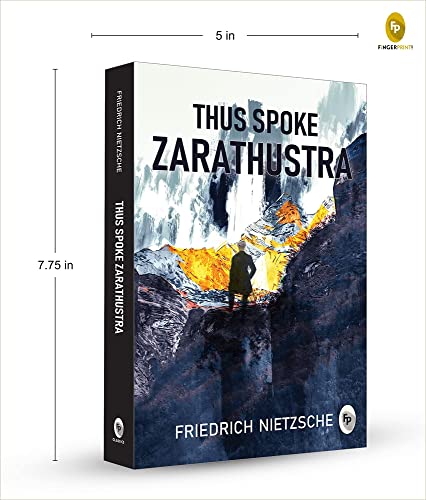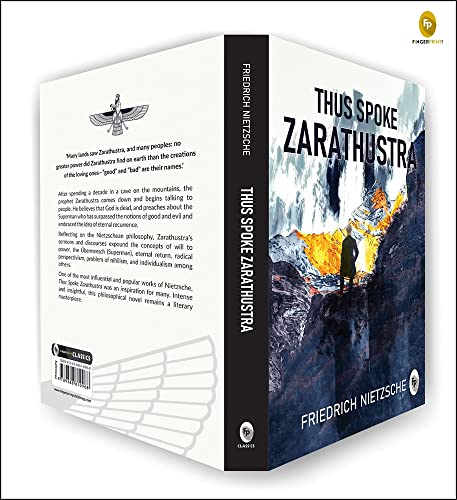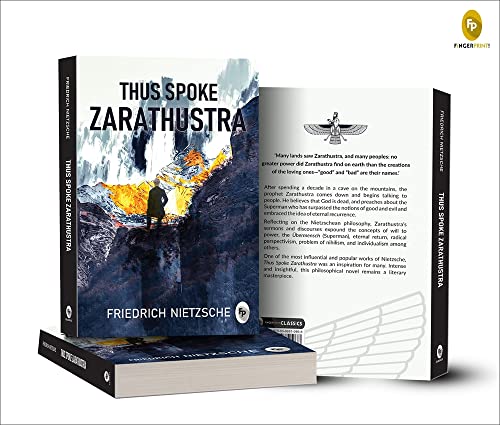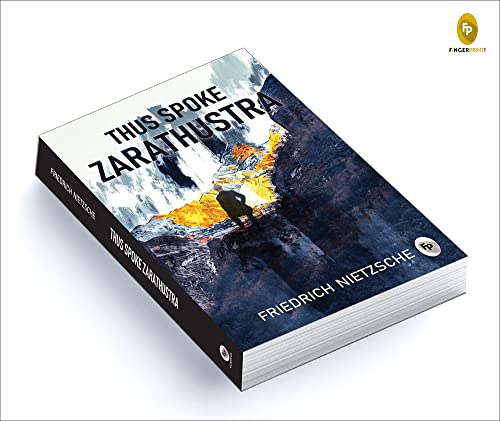Review , also translated as Thus Spoke Zarathustra. Treatise by Friedrich Nietzsche, written in four parts and published in German between 1883 and 1885 as Also sprach Zarathustra. The work is incomplete, but it is the first thorough statement of Nietzsche’s mature philosophy and the masterpiece of his career. It received little attention during his lifetime but its influence since his death has been considerable, in the arts as well as philosophy. Written in the form of a prose narrative, Thus Spake Zarathustra offers the philosophy of its author through the voice of Zarathustra (based on the Persian prophet Zoroaster) who, after years of meditation, has come down from a mountain to offer his wisdom to the world. It is this work in which Nietzsche made his famous (and much misconstrued) statement that “God is dead” and in which he presented some of the most influential and well-known (and likewise misunderstood) ideas of his philosophy, including those of the Ubermensch (“overman” or “superman”) and the “will to power.” Though this is essentially a work of philosophy, it is also a masterpiece of literature. The book is a combination of prose and poetry, including epigrams, dithyrambs, and parodies as well as sections of pure poetry. — The Merriam-Webster Encyclopedia of Literature Product Description When Zarathustra was thirty years old- he left his home and the lake of his home- and went into the mountains. There he enjoyed his spirit and solitude- and for ten years did not weary of it.’ (Excerpt from text) Excerpt. (c) Reprinted by permission. All rights reserved. From Kathleen M. Higgins and Robert C. Solomon’s Introduction to Thus Spoke Zarathustra Friedrich Nietzsche published the first part of his Also sprach Zarathustra (Thus Spoke Zarathustra) in 1883, and it became his best-known book. He considered it his most important work, and toward the end of his life he immodestly described it in Ecce Homo (1908) as “the greatest present” that had been made to humanity so far. In the same book, he no less outrageously proclaims that it is “not only the highest book there is . . . but it is also the deepest, born out of the innermost wealth of truth.” So we should not be surprised to find that Zarathustra is an extremely enigmatic and often pretentious work and by no means easy to understand or to classify. It is not clearly philosophy, or poetry, or prophecy, or satire. Sometimes it seems to be all of the above. It is also difficult because it is filled with learned allegories and allusions–to the Bible, Plato, Shakespeare, Goethe’s Faust, Ludwig Feuerbach, Arthur Schopenhauer, Nietzsche’s former friend Richard Wagner, and others–references that might not be readily recognizable by most contemporary readers. Zarathustra’s subtitle, “A Book for All and None,” also sounds like a challenge, if not a direct affront, suggesting that while anyone might pick it up and read it, no one can really understand it. In the then anxious world of modern Europe, already preparing for the calamities and traumas of the twentieth century, Zarathustra would find itself curiously at home.The basic format of Zarathustra is familiar. It tells a story in biblical style. Zarathustra is an epic that resembles no other book so much as the New Testament, a work that Nietzsche, who had originally intended to enter the ministry (and whose father and grandfathers had all been ministers), knew very well. Like Jesus in the New Testament, the titular character of Nietzsche’s book goes into solitude at the age of thirty and returns to humanity with a mission–to share his wisdom with others, to challenge them to reform their lives. But like Jesus, Zarathustra is seriously misunderstood. The book thus chronicles the protagonist’s efforts and wanderings, his coming to understand who he is and what he stands for, by way of his interactions with the various and often odd characters he meets along the way.Nevertheless, there are obv
Thus Spoke Zarathustra
$12.29
This classic work of philosophy introduces the student to complex ethical and existential ideas for advanced critical thinking.
Thus Spoke Zarathustra
$8.99
This seminal philosophical work encourages students to engage with complex ethical and existential ideas, fostering critical thinking.
Thus Spoke Zarathustra is Friedrich Nietzsche’s groundbreaking philosophical work that challenges conventional wisdom and explores the concept of the Ubermensch. Delve into Nietzsche’s powerful prose as he takes you on a journey of self-discovery, morality, and the overcoming of societal constraints. Provocative ideas that continue to shape philosophical discourse Deep philosophical insights presented in an accessible and engaging manner Thought-provoking reflections on the nature of existence and human potential A seminal work that explores the complexities of morality and ethics A meticulously translated edition that captures the essence of Nietzsche’s original text, making it a must-read for scholars and philosophy enthusiasts.
Additional information
| Weight | 0.175 lbs |
|---|---|
| Dimensions | 1.9 × 12.7 × 19.7 in |
Reviews
There are no reviews yet.






















Reviews
There are no reviews yet.